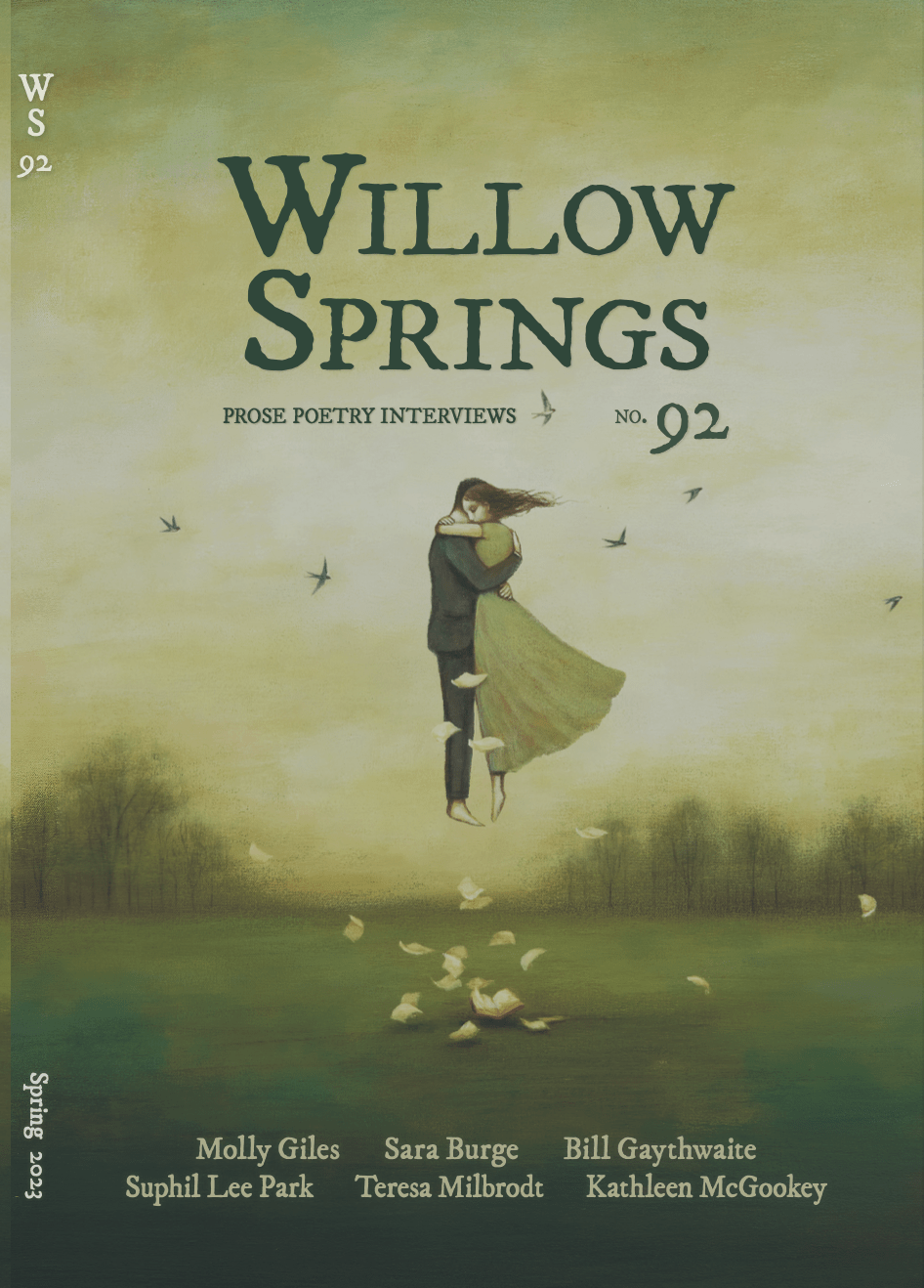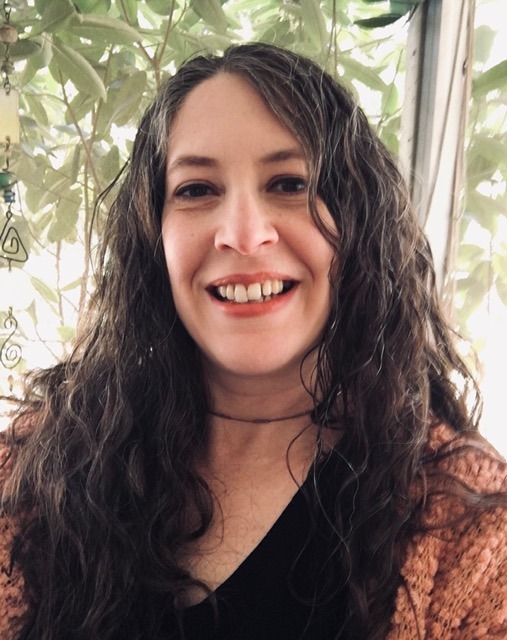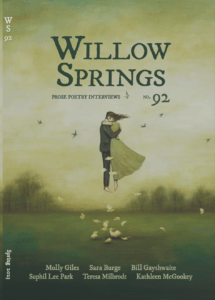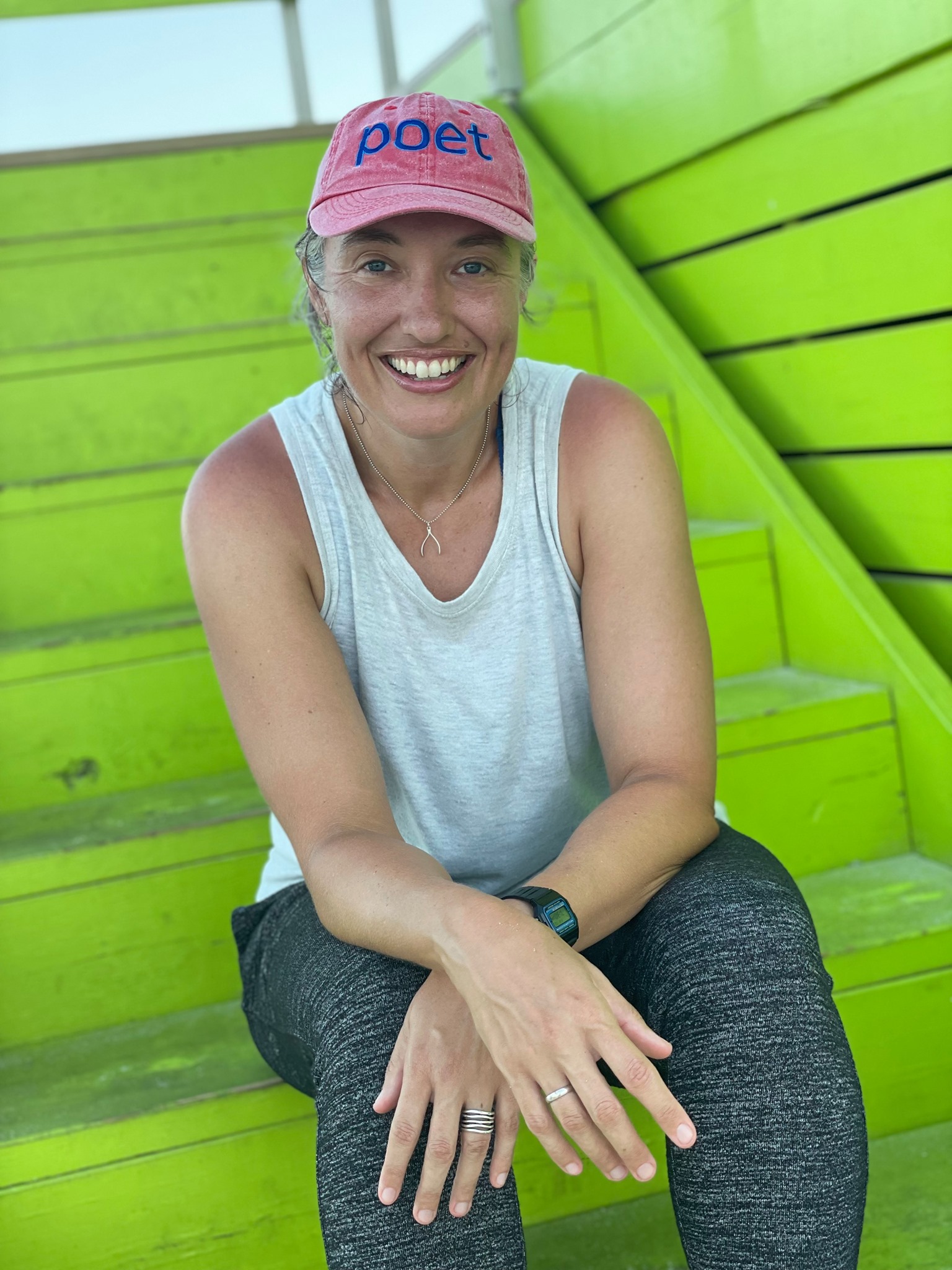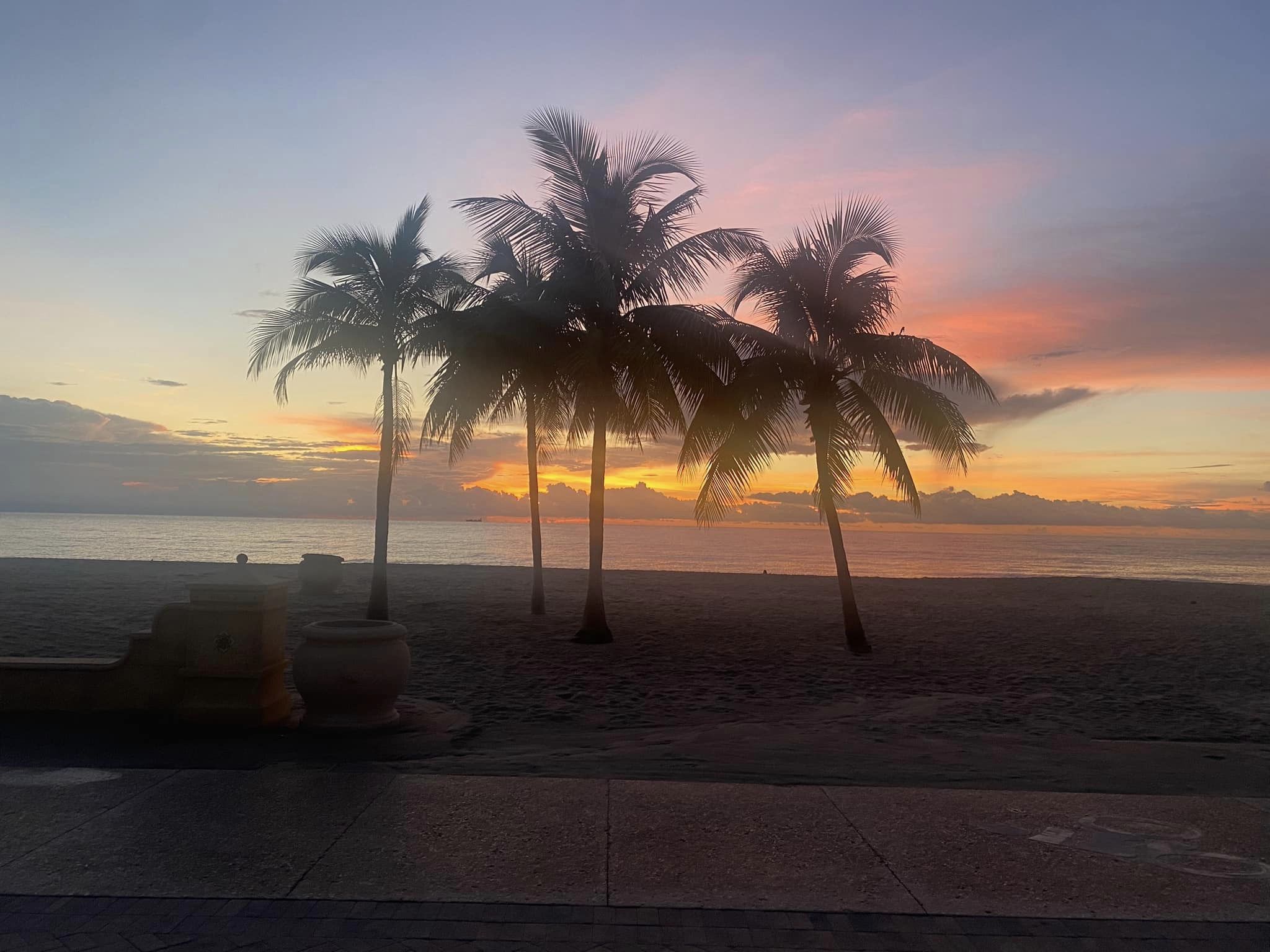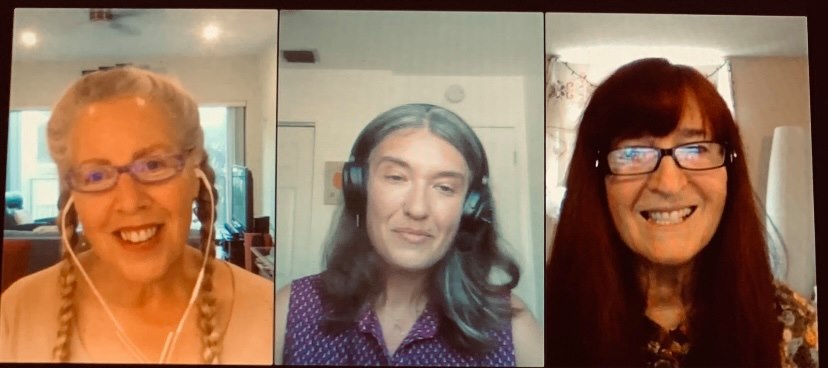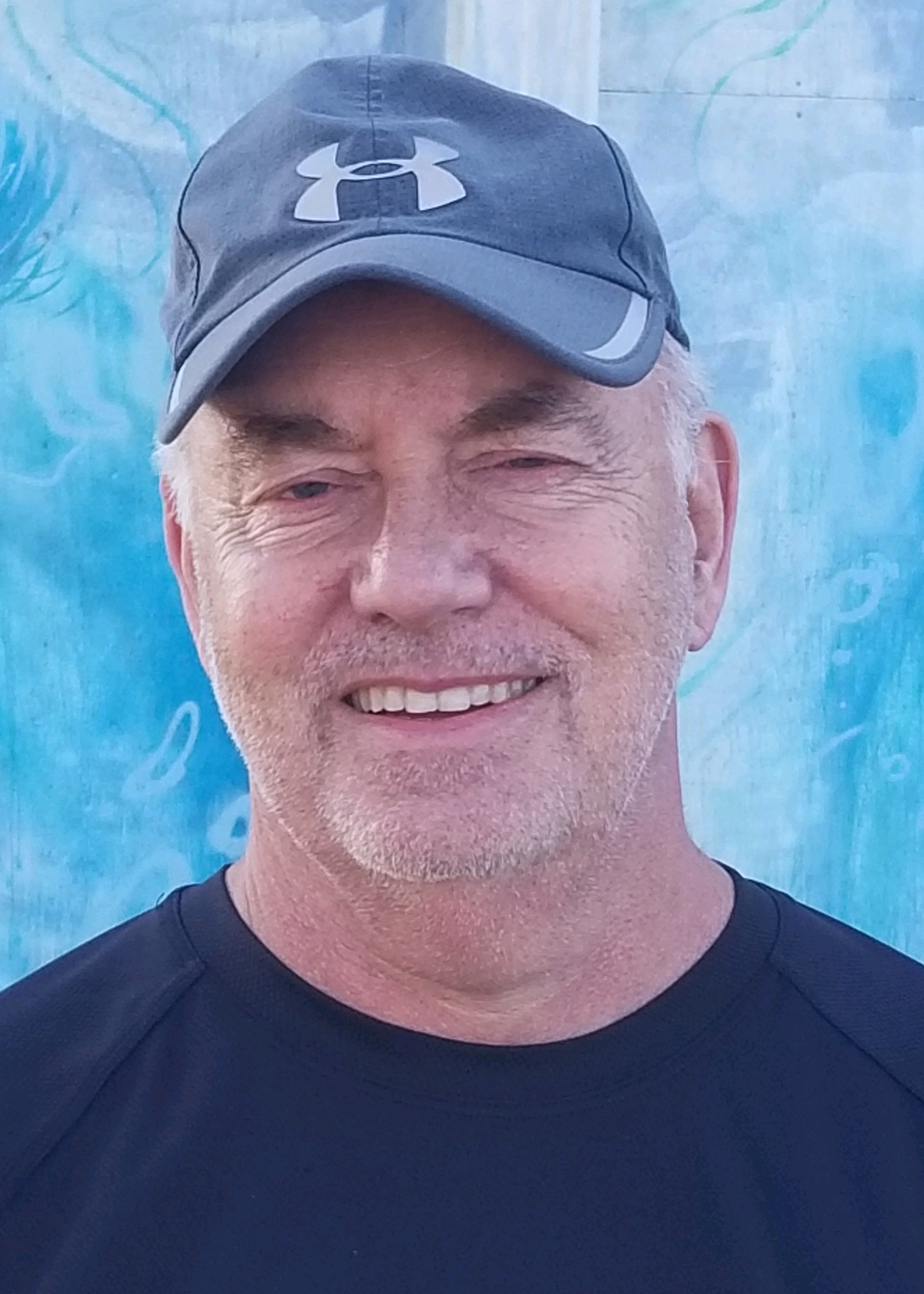BEFORE MY FATHER RUNS OFF, he suddenly showers us all with attention. It's jarring at first, like having someone crowd next to you on a bus when there are plenty of seats in back. There's something desperate about it, but I'm not thinking this at the time. I'm just thrilled to be part of his world, because up until then he has been a shadowy figure, a supporting player in our lives. He's a busy executive, a senior vice-president at a famous insurance company in Boston, coming home late most nights from work after my brother and I are in bed. I wait up for him, for his late-night, one minute check-ins, first to Wiley's room across the hall and then to mine. He stands at the foot of my bed as he loosens his tie, squeezes my big toe.
"You awake, Sport?" he says.
I always make sure to keep my toes peeking out from under the covers so he can grab one, but because of pride or stubbornness I never say a word before he walks away.
He goes to the office most weekends as well, and when he doesn't, he leaves the house at dawn to play golf, which he tells us is work-related, too. For business contacts. He calls golf a necessary evil, as if he's talking about a flu shot in the ass.
It is 1975.
He calls my mother every afternoon, usually to say he'll be taking the last train out of the city to our little suburb.
"Why does he do that?" I ask her once after she puts the phone back on its hood. We are standing in the kitchen, the afternoon sun coursing through the windows, spilling over the Formica countertops. "Like he's telling you something you don't already know."
I have just turned thirteen and am getting a mouth on me.
"He likes to keep me informed," Ma says.
There might be an edge to her voice when my mother tells me this, or I might be remembering it that way, adding it in after the fact, like a sound effects engineer.
"Anyway," I tell her, "you should suggest he save his calls for some really big news, like when he's planning to make it home in time for a meal with his family."
"Now, Kevin," she sighs, "don't be so dramatic."
I already have a reputation.
"Ma!" I shout. "He's never here! Wiley pointed to the weatherman on Channel 4 the other day and asked if he was our father!"
My little brother, of course, has never said such a thing; because he's ten years old and knows better, but I still see the impact of my wise-ass words flash across Ma's face like brush fire. Soon after this, it is summer, and they are remodeling my dad's offices and he is suddenly home full time, and this is when the attention starts. He lavishes himself on us. When it happens, I am willing to forgive everything that has come before. I am powerless against it anyway. It's like a natural disaster. He's my dad.
He takes Wiley and me to Fenway three times during those weeks to watch the Red Sox play. We win every time. At least my memory has it that way. My dad gets chummy with the guys selling concessions at the Park, introduces himself to everybody sitting in our section and makes up nicknames for total strangers. He slaps people on the back too, as if he's running for political office. but like with real candidates, this routine seems to divide the crowd. He makes an impression alright, but I notice a few folks tum away and shrink back as if from an exposed power line. My brother 15 crazy out of his mind for Fred Lynn that summer, the rookie center fielder for the Sox who is having a phenomenal season. Every time the big guy comes up to the plate or lopes out to his position, Wiley stands up, waves his arms like a castaway and yells "Frrreeedie!!!!" in his shrill little voice. I am at the age when I get embarrassed by anything that causes strangers to look in my direction. I smack Wiley with my baseball glove and tell him to shut up. We always bring our gloves to snag foul balls, but they never come anywhere near us.
Ease up on your brother, Sport," Dad says and softly cuffs my ear. It is tough to be angry at Wiley. He is a sweet-natured, cheerful kid and we rarely fight, which even then I realize is beyond miraculous for brothers. We love all the usual things about Fenway, the hot dogs, the hum of excitement, the quirky beauty of the place. Some years later, when I am flying over Ireland on my first trip abroad, I finally see colors that can compete with my lush green memory of that painstakingly maintained playing field. In Dublin I buy a postcard with a standard aerial shot and send it off to Wiley at Bucknell, scribbling "Frrreeedie!!!!" on the back. I know he'll understand. We're brothers. We have joint custody over certain memories, visitation rights.
My mother doesn't come to the games, but she loves to hear us talk about them when we get home. Wiley spins with excitement, almost frothing at the mouth with it. He can remember every play, every moment and he acts it all out like a stage production. And Ma says "oohhh" and "ahhh" in all the right places, like she's been waiting her whole life to hear such stories. Dad and I hang back a bit, off to the side, his arm draped across my shoulders, while we watch the show with big wide grins on our faces.
WE DO A LOT OF THINGS TOGETHER as a family that summer. It's just ordinary stuff, but it's more than we've ever done before. We go to the Stoneham Zoo and the Aquarium at Central Wharf in Boston and a Mel Brooks movie which my mother worries about being too adult for Wiley and me.
"Lighten up, Gwen," Dad tells her in the refreshment line, as she gawks nervously at Teri Garr's cleavage prominently featured in the lobby poster. He gives Ma a friendly hug. Then he looks over her shoulder, catches my eye and winks, like we are sailors on shore leave.
We drive up to a beach on the North Shore during the week, when it isn't so crowded. Dad does a perfect backflip on the sand, teaches us how to body surf. The ocean is freezing and Ma forces us to get out when our lips turn a phosphorescent blue. On our way home we are sunburnt and gritty with sand, our hair stiff with salt. An announcer on the car radio mentions the first rendezvous in space between the Apollo and Soyuz spacecrafts. a hopeful sign for U.S. and Soviet relations and it adds to the optimism of the day.
At home that summer, after dinner, which we once again are sharing as a family, my father can't sit still. He moves and moves around the living room, telling jokes, doing his card tricks.
"Pick a card, any card, any card at all," he bellows, fanning the deck out in front of us like some Vegas hustler.
The tricks are lame, and I begin to figure them out, but Wiley ogles my dad as if he's a celebrity. And sometimes I can't help myself, so do I. My father was a jock in high school and college and he still has an athlete's muscular grace. He is handsome and confident, but it goes beyond his good looks, his golf tan and perfect teeth. He is a hot-shot businessman who is used to working a room. We are, I suppose, not unlike the people who report to him, a captive audience. Even that night I am aware he is performing. He wants something from us. Perhaps it is simple adoration, but much later the possibility will occur to me that we aren't in his thoughts at all.
My mother watches him too. She looks pretty and young in a pink sundress, wavy blonde hair falling across her eyes. She has always been quiet, and her movements are often slow and deliberate, like she is trying to coax small animals out of the woods. Like Wiley and me, she seems to be enjoying herself. as if she is giddy with good fortune. Though I wonder now if she was also on to my father in some way, but helpless in the face of his summer onslaught just like me.
The remodeling of my father's office is completed, and he goes back to work. We slip quietly into the old patterns, but the summer memories are fresh and real and they linger. We're still happy for a time. It is late August when I come downstairs and find my mother sitting at the kitchen table. She rarely sits around in the morning, so this is already suspicious. Usually she is preparing breakfast, putting it out for us, clearing it up. On this morning, though, she is dressed, but something isn't quite right about her. I think for a moment she is sick, but that would be truly unheard of. The dress she is wearing buttons up the front, but the buttons and holes aren't lined up right. I can see tiny ribbons of pink flesh through the material, the white of her bra. I am humiliated for both of us.
"Ma," I say, trying to advert my eyes, "your buttons are all messed up."
That's when she tells me that my dad has walked out. Her voice is flat and shocking, not like her own, or anyone's.
"Your father is gone," she says.
I know right away she doesn't mean he has simply left for work, but I ask her anyway, if that is what she means. She sits up very straight.
"He has a new job," she tells me, "a sort of promotion, a transfer to California. I didn't know until he started packing last night. He took all his clothes except the winter things. I have no other way to say it, Kevin, so I am just telling you. He's not coming back. Its not about you or Wiley, obviously nothing you could have done. He needed to leave and that's where we are."
She has rehearsed this in some manner, I think. It sounds fake, practiced, like a bad script. Or something Dear Abby might advise—what to tell your kids when your husband suddenly bails on you. She must have been saying it for hours, over and over in her head, while waiting for me to come downstairs, and this is the terrible way it came out. It is totally ridiculous.
I make her say it again.
I ask if they had a fight, and she says no. She says he told her after Wiley and I had gone to bed, after his nightly check-in. I try to think if he waited at my door or held my toe a little longer, but I can't remember. I might even have been asleep. After the summer we just had, I felt bloated with attention, almost sloppy with it. There had been no need for me to wait up for him anymore.
"Didn't you tell him to stay?"
"I suppose I did," My mother says carefully. She has slumped back down in the chair now, like the air has been let out of her.
"You suppose? Why didn't you kick and scream and make him?" I ask.
I'd seen plenty of TV dramas by this point and that's what jilted women usually did, but that wasn't Ma's style. A year before this she ran up and down the neighborhood cheering and waving an American flag when Nixon resigned, but that was a rare display of emotion. Usually, she's unflappable.
"Kevin, he's been plotting it, okay?" she is saying. "The company has rented him an apartment out there already. He has a brand new address. It's happening. He's on the plane right now. It's final"
She says this as if she can't quite believe it herself. I notice we are both shaking. I can hear the wall clock ticking off seconds above our heads, a reminder that our lives are moving on without us.
"Does he want to marry someone else?" I ask her.
In those same television movies men were always deserting families for other women.
"He wouldn't say," she tells me, but averts her eyes.
I take that as a yes.
I can hear Wiley pounding around upstairs.
That's when she slips me a plain sealed envelope. I honestly don't remember what my father had written. I know it seemed as phony as what my mother had told me, something about being a man, how I'd always be his son or some other foolish crap he scribbled down on his way to the door. What I do remember is the twenty-dollar bill that floats to the floor when I open the envelope. I let it land there. I don't pick it up. When I finish reading, I hand the note back to my mother without comment. I think she expects me to tear it up into tiny pieces or toss it down the garbage disposal, ever the little scene stealer, but it is totally worthless as it is. She stares at me and her eyes begin to well up. She is sorry for me. I can see that, and that is when I feel my own tears coming, unstoppable as a seizure. .
MY MOTHER HAS NEVER EVEN WRITTEN A CHECK before my father leaves for California. She has to get books about household finance out of the library. She takes it all very seriously and begins to get organized. About a week after my father leaves she gets a small blackboard and writes out assignments and duties for all of us.
"We never had to help with laundry before," I whine, scanning the list of chores under my name. "Neither did dad. You're passing off your own work."
"I have other things to worry about now" she says. "I need your help and your brother's. We have to be like a team."
"Sure, coach," I say, snapping my heels and giving her a salute.
Wiley is looking up at us both with a worried expression on his face.
"I'll help," he chirps.
"Pussy," I mumble at him.
My mother slaps me hard behind the ear, an unimaginable occurrence until that moment.
The three of us stand there stunned, unrecognizable, like visitors from another country, unsure of the official language.
"Do we understand each other?" my mother finally asks.
"Not really," I tell her, but she doesn't hit me again.
IT'S TRUE MY FATHER LEAVES for that promotion my mother mentioned. But I'm right too. There is a woman named Delores Cantwell, a junior executive at his company who is being transferred to California at the same time. She has blown up her own marriage to be with my dad, but not as gross on her end because she doesn't have any kids to ditch. Perhaps she was one of his weekend golfing buddies. I never meet this woman. A few months after my father and Delores arrive in San Diego, feeling, as one can imagine, optimistic about their future he is investigated for some financial and ethical improprieties. It's not quite embezzlement and the company does not press any charges, but my father is fired an finished in the insurance industry. Delores dumps him soon after. But instead of crawling back to us, my father stays in California to explore his options. He's a man who believes in making his own luck. I don't know all this at the time, but the essentials are pieced together later, as I get older, like the clues in a mystery novel.
We have the house, a three-bedroom Cape, in a modest neighborhood. My mother always refers to this as a mixed blessing. For years my father had been saying we'd move to a bigger place, in a more exclusive town, something more fitting with his growing importance at the company. He was only waiting for the right moment, but then he takes off for California before it every comes about.
The house has a number of problems, a leaky roof, air in the pipes, a crumbling foundation. It groans at night like someone in the terminal ward. My mother checks out more books—How To Be Your Own Electrician, How To Be Your Own Plumber. We all get pretty handy, in a general way. We can recognize all the tools and tackle the minor repairs ourselves. For the longest time Ma whispers "I can do this, I can do this" over and over, like it's her personal mantra, even if she is only changing a light bulb. And sometimes she mutters it as we pass in the hallway or sit at dinner, when there are no repairs in sight.
When my father loses his job in California, his checks stop coming, so my mother goes to work as a secretary in a law firm and takes classes part-time so she can become a teacher. That's when she is pleased we don't have such a fancy house. She'd never be able to handle higher mortgage payments on her own. I am worried about her becoming a teacher. I am in junior high now and teachers are known to have nervous breakdowns right in front of a class. Once, in Physical Science, we are passing a Playboy under our desks when a substitute, a tiny disheveled woman named Mrs. Hand, discovers it and starts calling us a bunch of dirty little bastards. She is screaming like the building is on fire, waving her arms about. The assistant principal finally has to come and drag her away. The last thing she says before she is led out the door (the magazine rolled up tight, like a baton, in her fist) is that she is planning to pray for us, for our immortal souls. Needless to say, we never see her again. But for months afterwards my friends and I greet each other in the hallways with hoots of, "How's it going, ya dirty little bastard?" while making the sign of the cross.
"You're not going to work at my school, are you Ma?" I ask one night when she gets home from class. It is my night to cook dinner, macaroni and cheese. Wily is setting the table. He has his own system. He doesn't like anything to match. The plates and glasses are an assortment of sizes, the silverware is from two separate patterns and each napkin is a different color. Since Dad left, my mother doesn't care about this stuff, so long as we eat.
"Don't sound so terrified, Kevin," she says.
"I'm not terrified. I was only wondering."
"Well, beggars can't be choosers."
"What does that mean?"
"It means I need to work."
"But Ma," I say.
"For Christ's sake, Kevin, if l get a job at your school I'll take an assumed name and wear a goddamned veil over my head. Okay?"
"You never used to swear."
"It's a new day," she tells me.
A YEAR OR SO after my father leaves us, my mother is still busy constructing our new life, and it is clear we are all going to survive, but that doesn't mean I am prepared for the next development. I come home from soccer practice one Saturday afternoon in September and find Oliver Voolich, the deli man from the First National, sitting on our sofa in the living room. It is a surreal moment for me, Voolich next to my mother, his hair slicked back, dressed in ill-fitting jeans and a plaid shirt. I am used to seeing him at the grocery store, paper hat perched on his head, greasy apron cinched at his waist, shouting our numbers for the next customer in line.
"Kevin, you know Mr. Voolich," my mother says, nodding in his direction.
"Yeah?" I grumble, but it comes out more like a question.
"You can call me Oliver," Voolich tells me.
"Hello Mr. Voolich," I say.
"Oliver has been kind enough to offer to help us put up the storm windows this year," Ma says.
Voolich appears to be blushing furiously, or perhaps his skin just looks blotchier out from behind the deli counter. He has the round, pinkish face and squinty eyes of a newborn. There is definitely something soft and infantile about the whole package, even though I place his age at forty-five or so. He is of average height, though slightly stooped, with wide hips, a mess of curly brown hair, and no discernible chin. When I later find out he lives in a single room above Shoe Town, this feels just about right and completes the picture.
At the deli counter, Voolich is patient and composed, good with difficult customers, scrupulously honest while administering the meat scale. But out here in the real world, hanging out in my living room, he is simply dull as rocks, so dull it hovers over him like body odor.
"We put up the windows by ourselves last year," I remind my mother, making sure not to make eye contact with our visitor.
"And we almost lost our lives in the process," Ma responds.
She has a point. The previous fall I had balanced precariously on top of the ladder while Ma hoisted windows up to me on the second floor. Wiley had steadied the ladder directly beneath us. We were like mountain climbers tied to one another. We knew we were in harm's way.
It's obvious that Voolich wants to be of assistance, but naturally I question his intentions. We don't need anyone new in our lives. The truth is we are doing okay. The three of us have found a certain groove of living together. If l consciously miss my father, it is in the evening when I remember his nightly check-in at the foot of my bed. Unlike most children of divorce, I hold no illusions about my parents reconciling. Although, since Wiley and I now are somewhat aware of Dad's financial scandal and the break with Delores, we half-expect him to show up one day on the doorstep, shame-faced and eager to be forgiven, like a runaway pet. This never happens wither. He barely keeps in touch with Wiley and me, while he's on his own twisted journey. Gifts arrive late, three months after our birthdays or Christmas. We suffer through phone calls laced with awkward silences. We get goofy, bizarre postcards from the guy. If you only knew how much I miss you, my father writes.
In the end, Voolich helps us with the windows, but the gawky sight of him on a ladder, drenched in sweat, laboring mercilessly, puts no one at ease.
"Good work, Oliver," my mother shouts up to him in an encouraging, anxious way as he finishes fastening the last one.
"Yeah, it's poetry in motion," I say quietly to Wiley who gives me a look like he doesn't want me to start anything.
After this, Voolich apparently feels confident enough to insinuate himself into our lives a couple of times a week, often arriving with a smoked ham or a cold cut platter. He is a deli man. If he were a carpet salesman, he might come bearing throw rugs and vacuum cleaner bags. Of course, by showing up with food, he can always count on an invitation to dinner, a fact he must have figured out for himself. My mother is always polite to him, but I notice she makes no other concession to his presence. When he joins us, she doesn't put on lipstick or tell Wiley the table settings need to match. Still, I can't be more disturbed than if my she were sitting on his lap and sticking a tongue in his ear. To my way of thinking, she is treating him far too casually, the way she does Wiley and me, her own family, the fixtures in her life. And I hate the notion of Voolich becoming a fixture in my life. To my now fourteen-year-old brain, his florid face and sagging body represent failure and despair. I am worried about what my friends will saay if they see him out with Ma. I can already hear a litany of hide the salami jokes.
Though my mother is the main attraction for Voolich, he often makes uneasy attempts to engage Wiley and me in conversation. He tells the same stories over and over again, droning accounts of his day behind a deli counter, with one day not any different from the last.
Once again it is Wiley who handles these situations gracefully. He politely answers idiotic questions concerning homework or sports, two subjects Voolich feels compelled to discuss. However,, I don't think the man is ever comfortable around us. He regards us, perhaps the way he views all children, with caution, as if looking over his shoulder in a rough neighborhood. This is brand new territory for him.
Privately, even my super sweet brother admits to his own reservations.
Yep, he is a bit of a freakazoid," Wiley tells me on our way to school one morning.
"Exactly," I say.
"But that doesn't seem to bother Ma," he adds quickly.
"No," I say. "It sure as shit doesn't."
Voolich has been coming around for over a month when I decide it is finally time to confront her about the situation. I approach Ma late one evening as she is seated at the kitchen table, course work spread out in front of her. It's her favorite spot for studying. Books and pencils are spilling out everywhere. I notice she is wearing her hair longer, wilder, less like a housewife's and more like a student's.
"What can I do for you?" she asks, without looking up from the notebook she is scribbling in.
"How long is this going to go on?" I ask.
"What are you talking about, Kevin?"
"You know what I mean. Voolich. Meat and cheese man. Is he going to become a regular thing around here?"
She looks up at me then and I can tell she is slightly amused, giving me a prim, tired smile. She has hours of study ahead of her, the house to pick up, a new day looming tomorrow.
"He's a nice man," she says predictably.
"He bores Wiley and me under the table." I don't mind enlisting my brother in this campaign.
"Really?"
"Don't you think he's boring?"
"Kevin, I've heard enough sparkling conversation to last me a lifetime," she says.
And when she says this, I know she is referring to my father.
"Look," she goes on, "I don't really expect you to understand, but Oliver listens to me. He truly listens to me when I talk about my day, my time at school. This is a pleasure, and something haven't really experienced before with another grown-up. It has never been easy for me to meet new people. I enjoy his company."
"Maybe it only seems like he's listening, because he's too tongue-tied around you to form actual words in the English language."
She doesn't respond to that, so I keep at it.
"Do you love this guy or something? Are you going to marry him?" I am horrified as I even say these things.
"Don't be ridiculous, Kevin," Ma laughs. "He's a friend. It's a harmless situation."
"Is he in love with you?"
"No," she answers cautiously, "Of course not."
I can tell she is weighing my question, maybe afraid to really look at it, like a puncture wound. I pause for a moment, the way a television anchorman switches gears before delivering the really serious news.
"Well, I just wanted you to know your sons are unhappy about this."
"Point taken," she says, but in such a way as to make it clear she has no intention of doing anything about it.
A couple of weeks after this, she comes into the living room where Wiley and I are watching an episode of Baretta. She announces that Voolich has phoned and wants us to join him for an outing the following weekend.
"He wants to take us all to an amusement park, to Treasure Island," Ma say. "What do you think?"
We haven't done much in the way of amusement since my dad left town. Our finances and my mother's schedule don't warrant it. The term entertainment expense has not found its way into our weekly budget. So despite my feelings for Voolich, my anxiety over his future role in our family, I can't help but look forward to the getaway he is offering us.
"Better than a wiener factory," I sigh, and even Wiley can't help but laugh.
When the day arrives though, our adventure doesn't start out well. Voolich shows up earlier than expected and loiters around the kitchen as we finish our breakfast. He follows us from room to room, bites his lip. jangles the car keys in his trousers as we grab our jackets and put on our shoes.
"Are we in a hurry, Oliver?" my mother asks him.
"No, no, no. Take your time," he says, in the sort of clipped, nervous tone which only gets us to move faster.
Voolich is so impatient to get on the road; I make sure to buckle my seatbelt as soon as I settle myself in his car, a worn-out Plymouth. I think he might want to make up for lost time and risk our lives in the process. But once behind the wheel, he reverts to type and we inch our way to the park, practically traveling in the breakdown lane. Treasure Island is located on the South Shore, half way to the Cape. We pass a number of signs for the place on the trip down, advertising water slides and a roller coaster. And on each colorful billboard the park's official mascot, a pirate with an eye patch and a hook for a hand is featured, slyly beckoning to us.
Wiley is excited, bouncing lightly up and down in the seat beside me.
"Do you have to shit or something?" I ask him. But I am smiling when I say it, because I am excited too.
Then we get there.
Treasure Island is not even an island. It sits swelling like a festering blemish at the edge of a faded resort town. It's basically a huge parking lot, with some worn tents and kiddie rides strewn about, all enclosed by a rusty chain link fence. There are about two dozen unsmiling people, grim employees and unsatisfied patrons alike, milling about under the bleak October sky, which has grown more overcast from the moment we pile out of the car. While Voolich goes to the gate to purchase the tickets, I glare at my mother with my arms folder across my chest. She's enjoyed herself on the trip down, chatting easily in the front seat with Voolich about her upcoming midterms, happy to be taking a break and to get out of the house. But now faced with her sons' disappointment, I can see she is concerned.
"I don't know what to say," she tells us, gazing around at our depressing surroundings. "But we're here now. We'll have to make the best of it."
"Okay," Wiley says.
"Dumbass!" I snap at him. "There's nothing for us here."
I get tired of my brother's perfect-little-man-routine sometimes.
Voolich comes sauntering back, oblivious as hell until he takes one look at us and asks what the matter is.
"Treasure Island isn't exactly what the kids expected," my mother says diplomatically. "Not quite what was advertised on all those billboards."
"It's off-season, Gwen," Voolich tells her, as if this explains anything.
"You have to admit, Oliver, that it looks like the place has fallen on some hard times."
"More like hard times have fallen on it!" I say.
"I used to come here as a child," Voolich says, taking a long look around him, blinking at his own precious memories. "I suppose it has gone downhill though."
"And there's no roller coaster," Wiley actually volunteers.
"I asked the fella at the ticket counter about that. Apparently there was an accident a few years ago and they had to tear it down."
We all stand there for a while contemplating mayhem and disaster.
"Well, we don't have to stay," Voolich says in a quiet, defeated tone. I am ready to turn back toward the car, but he continues, "Or we could stay and give it a try."
"That's exactly what I told the boys," Ma says brightly.
The three of them turn and stare at me, waiting for my reaction, but since I don't really have a vote I just roll my eyes and storm past them toward the entrance. Voolich clamors in front of me, back in his anxious mode. He leads us to the basketball toss and the roulette wheel, other games of chance, talking the place up like a
press agent.
"Look at the prizes! There are some fine prizes to be had! Step right up, Wiley! It's on me! Go for it, pal!" Voolich gushes, rubbing the top of my brother's crew cut.
There is a ride called The Scambler, the only one which isn't too infantile for us. Voolich has us ride it three straight times until he gets a smile out of me. He has my mother go to a fortune teller and afterwards he buys her a French beret from an old woman hawking them near the refreshment stands. I can finally see how much this day means to Voolich. He is rushing us like a frat pledge, needing to belong. Whether my mother has figured this out or not, I don't know.
He buys Wiley and me cheeseburgers, hands us ten-dollar bills for the arcade, ushers us to the men's room, all things he considers to be fatherly behavior. No matter how hard he tries, he isn't up to the easy confidence the task requires. I can't help but remember the last summer with my dad. He was lobbying hard then too, but at least he had actual charm on his side.
Voolich is shiny with flop sweat as he continues to drag us from one so-called attraction to another. The half-empty park seems to be shuttering to a halt before our eyes. The wind has picked up too and now it's just a cold autumn day. Voolich's forced jauntiness only serves to accentuate the worst of all this. When he affects the posture and accent of the park's pirate mascot, we all know it's time to go home.
Back in the car, after we finally make our exit, I am almost content. Voolich's failure has been so complete and indisputable; he won't be around much longer. He'll be sent back to his gloomy life above Shoe Town. At least there's that. But on the way home, my mother, still wearing that idiotic beret, resumes their conversation about her exams as if nothing has happened and Wiley sits next to me happily consumed with the Etch A Sketch he'd won at the roulette wheel. It suddenly occurs to me they are going to forgive him. Worse yet, I see that they think there is nothing to forgive. Before we're on the road five minutes, Ma and Wiley each thank Voolich for giving us a fine time, how it turned out perfect after all. I am stunned into silence until Ma turns around from the front seat and glares at me until I mumble something tolerable in Voolich's direction.
Then I slump back down in my seat, looking out the window for the rest of the drive, as the South Shore drifts by. I sit there thinking about Ma's fierce optimism and her efforts to reinvent herself, how she has willed us all to move on and how she has pulled it off. And I think about Wiley's knee-jerk cheerfulness and how his perfect-little-man routine isn't a routine at all. I wonder how I've lander here among these people, like an alien spore in a science fiction movie.
Ma doesn't marry Voolich. They remain friends for another year after Treasure Island until he eventually stops coming around and hooks up with another woman, a cashier from his store. There will be other men in Ma's life, but nothing too serious as far as I ever know. She prefers not to get tangled up with anyone else's dreams, she tells me once. She is devoted to her studies, getting her teacher's certificate and taking more classes part-time, eventually earning a doctorate in education and becoming an assistant principal at a high school in South Boston, before she retires happily to New Mexico, to a clean white-washed house on the edge of the desert with cottonwood trees and scorpions in her yard. She just turned eighty, volunteers in the local library, dabbles in watercolors, and still wears her hair too long. Wiley refers to her as Our bootleg Georgia O'Keeffe.
My brother will remain grounded and kind. Kindness is Wiley's special gift. It will follow him around for the rest of his life. He grows up to run a social service agency on the Cape, making a business out of his sweet nature and good intentions. He settles down with a wonderful guy named Grady who sings in a bluegrass band, as if it's still the '70s. They adopt and raise three amazing kids, who I refer to as Wileys Embarrassment of Riches. He's a grandfather now. Like Ma often tells me, Wiley gives and gives, but he gets so much in return. But it's not until we arc on our way back from Treasure Island, in Voolich 's car, when I realize I'm not like them at all, with my high-strung nature and ticking complaints.
It's my father who I resemble. Not his swagger or smooth charisma, but the restlessness, the impatience, the always wishing for something better and just out of reach, all of which will lead to my own failed marriages, an erratic sales career, and a grown daughter who rarely returns my calls. Sometimes I still imagine my dad standing over my bed the night before he leaves us for good. The need to start a new and different life is clinging to him like a wet sheet. Something is propelling him. It's not Delores exactly or the promise of sunny California, but it's something. And I can almost make out the jagged shape of it, feel its clumsy weight, as he backs out of my room for the very last time.
